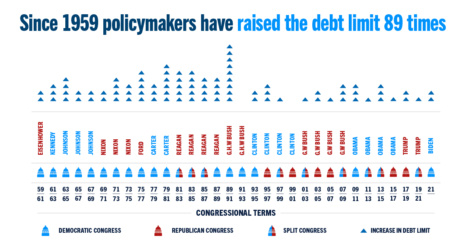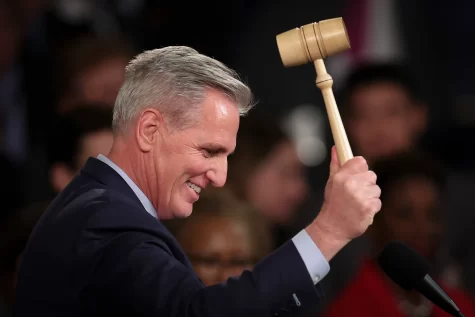
Jack Wolfsohn | Head Editor
20 January 2023
Over the last decade, the federal government has been spending an enormous amount of money and now its debt has begun to rear its ugly head. There’s two options in this situation, either the amount of debt that the government can take on is raised, or it’s not.
This cap on the debt is known as the “debt ceiling.” The debt ceiling is the legal limit on how much debt the federal government can assume, created in 1917. If it’s not raised, economic catastrophe will very likely ensue. Interest rates will rise, leading to prices rising, and inflation increasing overall.
The argument against raising the debt ceiling often comes from a misunderstanding of why the Fed requires the raise, to pay the already legally imposed bills passed by the government. It is not simply voting to “spend more money.”
Senior Christian McCleary said, “If economic collapse in the long run will be the result of raising the debt ceiling, but economic collapse short run will be the result if it’s not raised, the only thing that can be done is delay the inevitable.”

The GOP has not made any specific demands about what they’re going to do if the debt ceiling is not raised, but it’s likely along the lines of budget cuts to social programs that keep our disintegrating middle class afloat. Kevin McCarthy is the Republican leading the charge against raising the debt limit.
Senior Jessica Polanco said, “If the GOP has their way, only a very small amount of the population will benefit, and it’s not those most vulnerable in society. It seems as if the debt ceiling has to be raised if America wants to keep moving forward.”
The White House’s stance (essentially): No negotiation and no strings attached, the debt ceiling will be raised.

Leave a Reply